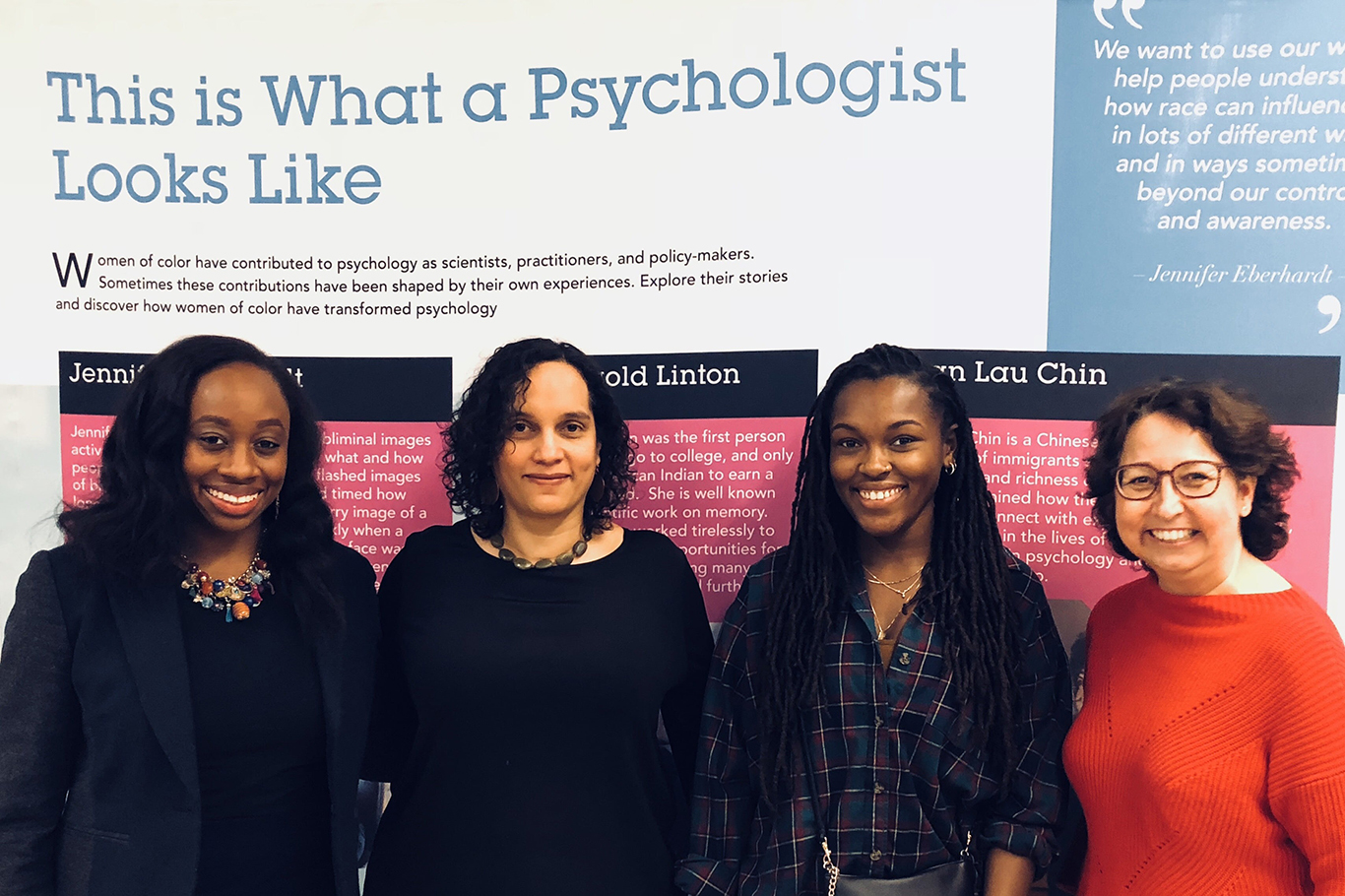
Drexel University held its third annual showcasing of a psychological treasure “I Am Psyched!” Feb. 25. The event, sponsored by the College of Arts and Sciences, celebrated the accomplishments of women of color in the field of psychology.
Created by the American Psychological Association, the convention has had a long list of reputable destinations. Initially debuting at the Smithsonian in Washington, D.C., many people were able to stimulate their minds with the discoveries that were spearheaded by women of color in psychology. The exhibit was then later showcased at the APA’s convention held in Denver, Colorado, later returning to D.C. at the prestigious historically black Howard University.
Drexel, the collection’s final destination, has since formally been coined as the technological innovator of the exhibit; the institution has worked hands-on in developing an interactive QR code, included iPads in the user experience and formatted the closed-captioning for embedded videos within the “I Am Psyched!” consortium.
Following the arrival of the collection at Drexel back in 2017, inspired students set out to launch a creative cohort of their own: Drexel’s Students of Color in Psychology.
“The field of psychology has a long history of illustrious names in their village, but as in other fields, women in particular — think of the movie Hidden Figures — have been underrepresented and underrecognized. This exhibit can’t undo the injustice done to women of color, we can recognize their contributions today to make sure they will never be forgot, but will be celebrated and serve as an inspiration for our students,” Dr. Dorothy Charbonnier, an assistant teaching professor of the department of psychology, said.
When asked what comes to mind when reflecting on the accomplishments of the forerunners in the exhibit, the panelists had much insight to share.
The seats were joined by Lauren Johnson, a third year Ph.D psychology candidate at Drexel; Dr. Stephanie Ewing, an assistant professor in the College of Nursing and Health Professions and Kaya Gravesande, a junior at Drexel studying psychology.
“The first thing that comes to mind is pride. Pride at their resilience and their ability to do the things that they did during the times that they did them,” Dr. Ewing said. “Their struggle, and the perseverance and the strength that needed to reach what they reached and the world that they paved for us today.”
“The [pioneers’] legacy in the field has made it a lot easier for me to do the things I do. To go to conferences and feel that there is representation — it speaks to there is a lot more to be done, but it has allowed me to do the things that I would like to do,” Johnson said.
She also added that she is excited to become a part of history herself, making sure to be an example for the women that will follow after her so that they’ll be reassured they can create even greater opportunities of their own.
Gravesande brought to light her hopes to hone into the statics of mental illnesses — specifically the presence of depression and anxiety that disproportionately affect people of color.
In a similar fashion, Johnson spoke about her mission to specialize in suicide and trauma studies with a particular focus on the adverse trends affecting her native country of Guyana — a populous that has been tremendously impacted by rising suicide rates, making it the nation with the highest number of suicides in the world.
“Hearing about the challenges facing the country, particularly the lack of infrastructure, lack of resources and having those conversations made me more interested in how those factors affect people disportionately, based on their ethnicity, country of origin, a lot of other socio-demographic factors,” Johnson said.
Dr. Ewing, a political and developmental psychologist, also cited that seeing common threads of disparities based on ethnicity and racial backgrounds inspired her ambitions to pursue psychology.
“Having the feeling of more needs to be done; psychology is potentially the way either through research of practice or both to make a difference,” she said.
She also cited that her mother, the first black female psychologist to graduate from Rutgers University, played a significant role in her shift from pursuing a different career.
“Standing on the shoulder of giants, following in the footsteps of women who did amazing things is another huge reason that I felt pushed to follow this path,” she said.
When questioned on the concern to break down barriers, the panelists presented the fact that carrying such a large responsibility can be daunting.
“As a faculty member, I am committed to mentoring students — specifically students of color — and creating an environment of inclusiveness; creating converversations and increasing opportunity,” Dr. Ewing said.
The panelist also discussed the importance of maintaining the drive to be unapologetic on the subject of breaking down barriers.
“Representation is the most important. Having professors, students, organizations and events will push us forward. Another important thing is interrupting conversation where you might not know what your opinion will contribute,” Gravensande said.
Johnson shared that engagement is also a priority.
“I think a lot of times it can feel stressful to have that responsibility — to not only be a mentor, but an advocate. It’s important that we encourage others who may not feel like us, or other who may have different experiences, to take this on as something truly important and meaningful and valuable for them as well,” she said. “We talk about niches that are of different racial backgrounds, different sexual orientations, different gender identities — all kinds of areas of diversity.”
Amber Davis, a junior psychology major minoring in neuroscience, expressed her takeaways from the discussion and how it broadened her anticipation for the remainder of both her college and professional career.
“I liked hearing what they had to say about their experiences. As women of color in psychology myself, it gave me something to look up to,” Davis said.


